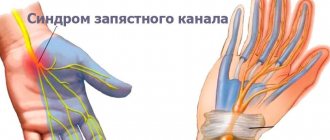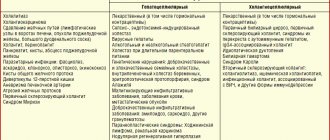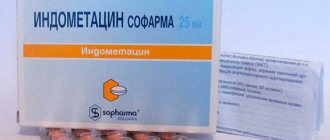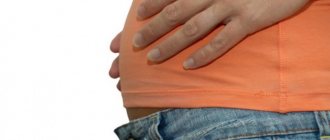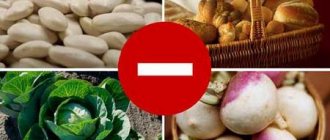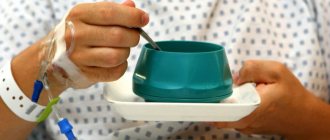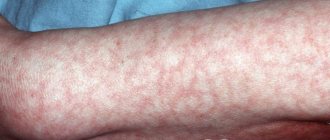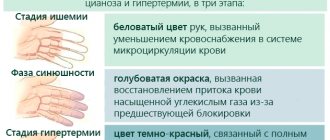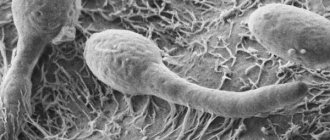Bacterial overgrowth syndrome (SIBO) is now a very “fashionable” diagnosis. What is it?
Manifestations of SIBO are well-known symptoms: bloating, flatulence, gas. The cause of this disease is changes in the composition of the intestinal microflora, namely the small intestine, when it is colonized by bacteria unusual for it (Escherichia coli, clostridia, compylobacter and others).
small intestine is located in the projection of the navel and around it; it is divided into 3 parts. These are the duodenum, jejunum and ileum. The duodenum is horseshoe-shaped and is located directly after the stomach.
Food crushed in the stomach enters the duodenum and is exposed there to pancreatic juices and bile. Pancreatic juice breaks down complex molecules of proteins, fats and carbohydrates into simpler ones so that they can be more easily transported through the intestinal wall.
A lump of food called chyme is formed. It passes further through the small intestine where nutrients are absorbed. The small intestine is indeed very long and thin. The total length of the small intestine in humans is from 2.4 meters to 4.5 meters, longer in men than in women. The inner surface of the intestine is lined with villi, and even the surfaces of the cells are also villous to increase the area of absorption.
Causes
There are several of them, the main ones are:
- disruption of the movement of the food bolus through the small intestine - intestinal obstruction due to adhesions, tumors, surgical interventions, fistulas between the small and large intestines, diverticula or saccular protrusions, Crohn's disease, lymphomas and the like;
- absence of the ileocecal valve or bauhinian valve - the valve that separates the small intestine from the large intestine;
- decrease in the amount of hydrochloric acid in the stomach - condition after vagotomy, removal of part of the stomach, long-term use of antacids, including proton pump inhibitors (Omeprazole, Losek), old age;
- impaired motility of the entire digestive tract - diabetic neuropathy, celiac disease or gluten intolerance, amyloidosis or deposition of altered amyloid protein,
- decreased thyroid function;
- immunodeficiency condition or HIV/AIDS;
- cirrhosis of the liver;
- chronic pancreatitis;
- alcoholism;
- The most common cause in infants is sanitary violations, when the intestines, sterile at birth, are colonized by inappropriate microflora.
What Causes SIBO?
Despite its prevalence, the causes of bacterial overgrowth syndrome are not yet well understood.
Research shows that this syndrome occurs in a large number of people, but symptoms vary greatly from one person to another.
SIBO is known to start for many reasons, from general aging to small intestinal defects, diabetes and pancreatitis. Regular use of antibiotics also disrupts the balance of digestive bacteria, which causes this condition.
Certain physical obstructions in the intestines, such as surgical scars or Crohn's disease, also contribute to it.
However, the most important factor for its development is the regular consumption of foods filled with simple sugars, refined carbohydrates, yeast or alcohol.
Why is the number of bacteria increasing?
To maintain a normal number of bacteria in the small intestine (less than 105 cells per 1 ml), there are 3 mechanisms:
- the presence of a bauginian valve or ileocecal valve, which allows contents to pass in one direction - from the small intestine to the large intestine, and never vice versa;
- normal motor activity of the entire intestine, when peristaltic contractions or waves periodically occur, due to which food consistently moves from the stomach towards the anus;
- a sufficient level of hydrochloric acid secretion, which suppresses excessive bacterial growth.
If any of these factors weaken or fall out, an uncontrolled increase in the number of bacteria begins. In terms of quantity and composition, the microflora of the small intestine begins to resemble that in the large intestine (quantity - up to 1010 cells per 1 ml).
Exceeding the quantitative composition twice causes inflammation and impaired absorption of nutrients. Thus, excessively multiplied bacteria absorb almost the entire amount of vitamin B12, and the person develops severe multivitamin deficiency. The metabolism of bile acids is disrupted, which alters the absorption of fats and their excess excretion (steatorrhea), as well as iron.
The intestinal mucosa where digestion occurs changes. The villi undergo atrophy, the crypts increase in size and grow, and lymphocytes accumulate in the submucosal layer.
Prevention
Successful treatment of intestinal bacterial overgrowth syndrome usually begins with differential diagnosis and identification of concomitant diseases, because SIBO is rarely an independent pathology. For this reason, the main preventive measure is timely detection and diagnosis-appropriate treatment of any infectious and non-infectious gastrointestinal diseases, regular medical supervision in case of digestive problems and following all doctor’s recommendations.
Patients (especially those at risk) are advised to follow the rules of a balanced diet in everyday life, not to overeat or starve, and to abandon strict diets for weight loss and home colon cleanses, which usually do not lead to anything good. It is advisable to avoid stress, ensure the normal functioning of the immune system and ensure sufficient physical activity. These are general rules for a healthy lifestyle.
Symptoms
Manifestations are nonspecific, characteristic of many other digestive disorders:
- mild abdominal pain;
- nausea;
- rumbling and bloating;
- diarrhea – loose, watery, foamy stools;
- weight loss in adults or insufficient weight gain in infants;
- impaired absorption of all nutrients (malabsorption).
Some people have no symptoms other than weight loss for an unknown reason. The disease is detected after examination.
Malabsorption becomes the cause of the second circle of disorders: anemia, vitamin deficiency, and the formation of oxalate stones in the kidneys. If you do nothing, then all organ functions are gradually disrupted.
Risk factors
Those at risk for developing intestinal bacterial overgrowth syndrome are young children (including newborns, whose gastrointestinal tract is just beginning to be colonized by bacteria) and the elderly. According to statistics, SIBO develops in approximately 20-43% of patients with diabetes.
A complex of symptoms is also typical for people with eating disorders and eating disorders. Bulimia, anorexia, periodic episodes of overeating, irregular and irrational nutrition with a deficiency of vitamins and nutrients can also lead to bacterial overgrowth syndrome (SIBO).
In half of cases, the cause of neonatal chronic diarrhea is SIBO. Microflora can also change after taking a course of antibiotics, with nutritional disorders (for example, eating foods that are not appropriate for age), intestinal infections and lactase deficiency.
The following phenomena also contribute to the occurrence of bacterial overgrowth syndrome in the intestines (symptoms will be described below):
- anatomical changes that contribute to a delay in the passage of contents through the gastrointestinal tract;
- absence of ileocecal valve;
- short bowel syndrome;
- various peristalsis disorders;
- increased secretion of hydrochloric acid;
- immune system disorders;
- the use of certain pharmaceutical drugs (for example, proton pump inhibitors, which inhibit the secretion of hydrochloric acid).
Diagnostics
The clinical picture in combination with data about a person’s life allows one to suspect a disease: old age, alcoholism, gradual weight loss, secondary metabolic disorders. In children, attention is drawn to lag in weight and delayed physical development.
The “gold standard” is growing bacteria from small intestinal aspirate. However, this examination is traumatic and expensive and is rarely used.
In practice, the hydrogen breath test is more often used. The patient is given dissolved lactulose to drink, then air is exhaled into the mouthpiece of the analyzer every 15 minutes for an hour and a half.
The gas analyzer detects hydrogen in the exhaled air, which is formed only during the process of metabolism that occurs without access to air (anaerobic). This reveals the section of the intestine in which metabolism occurs most intensively, because the number of bacteria there is much higher than normal.
A blood test for D-xylose is also used. This substance does not exist in nature, is an artificial carbohydrate, and is absorbed exclusively in the small intestine. He is given to drink, and then his blood and urine are examined. A healthy person excretes 80% of the dose consumed. If the substance is not absorbed, it does not enter the blood or urine, and residual amounts are detected.
What can Small Intestinal Bacterial Overgrowth Syndrome lead to?
I believe that for full health it is very important to diagnose and get rid of this pathological condition of the intestines in a timely manner. I'll explain why.
Firstly, this leads to a deficiency of important substances. Deficiencies of vitamins B12, A, D, E, K, and the minerals Calcium and Iron develop especially often. Deficiencies of these substances can lead to very serious health problems, such as anemia or osteoporosis.
Secondly, it turns out that bacterial growth in the intestines, where it should not be, leads not only to gas and diarrhea, but to more global, seemingly completely unrelated conditions - take the same anemia again!
Third, over time, SIBO leads to increased permeability of the intestinal wall. And this means microscopic particles of food and toxins entering the bloodstream, an immune response and here you have allergic reactions, autoimmune diseases, skin problems, hormones and much more.
Therefore, you should always keep your intestines a priority!
Treatment
The basic principles are the replacement of those substances that the body lacks and the suppression of the growth of bacterial flora against the background of a gentle diet.
Nutrition
Basic principles:
- avoidance of sweets, especially artificial sweeteners (no more than 1 teaspoon of natural sugar per day is allowed);
- exclude legumes;
- no more than 250 g/day of protein foods - lean poultry, lean fish or eggs;
- minimum potatoes, pasta, cereals and bread - no more than 300 g per day (all carbohydrate products);
- 1 apple per day;
- vegetables, stewed or baked;
- giving up dairy products and coffee;
- drinking enough water - at least 30 ml per kg of body weight per day.
Antibiotics
Main article: Antibiotics for intestinal infections
Prescribed in a short course for 1 week, high doses are used. Different groups are used: tetracycline, cephalosporin, containing clavulanic acid and others.
After the course, a break is taken for 2 weeks, and then another antibiotic is used, also for a week.
Additional drugs
Bactericidal and antiprotozoal drugs are used - Co-trimoxazole, metronidazole and the like.
According to indications, digestive enzymes are used, especially those that replace pancreatic secretions - Mezim, Penzital and the like.
How to Treat SIBO Using Natural Methods and Methods?
The usual conservative approach to treating this syndrome is antibiotics. But there are several problems.
- Antibiotics kill not only harmful bacteria, but also beneficial ones. So you can immediately say goodbye to your entire intestinal microflora.
- SIBO includes different strains of bacteria, and for antibiotics to be at least somewhat effective, they must be combined, and this must be done very skillfully!
- Well, don’t forget that bacteria develop addiction or tolerance to antibiotics and they simply stop working and require stronger “options”.
That's why I am for natural and natural treatment!
So, the treatment plan for Small Intestinal Bacterial Overgrowth Syndrome:
Starve the bad bacteria
We will do this with the help of nutrition. Special food!
The food is called FODMAP. It is aimed at eliminating foods that cause fermentation in the intestines, which complicates the process of destroying harmful bacteria.
This diet must be strictly adhered to for 14 days! This phase is aimed at healing the intestinal wall, reducing inflammation and getting rid of bacterial overgrowth.
The following products should be avoided:
- Containing Fructose (honey, maple syrup, fruits, dried fruits, fruit juices, cereals and anything that may contain Fructose)
- Containing Lactose (all dairy products)
- Containing Fructans (wheat, onion, garlic, artichoke, cabbage, broccoli)
- Containing Galactans (legumes, soybeans)
- Containing Polyols (sorbitol, maltitol, xylitol, erythritol)
Restore bacterial balance
To do this we will need to follow the GAPS nutrition protocol. It is aimed at restoring the “Leaky Gut”, the balance of microflora, preventing toxins from entering the blood, reducing sensitivity to foods, improving neurological function, strengthening the immune system, reducing anxiety and depression, and healing Irritable Bowel Syndrome.
I have already written in detail about this protocol here. You should follow it for at least 3 months.
Natural supplements
a) Natural antibiotics:
Garlic or Allicin
You can take either simple cloves of Garlic or in the form of an Allicin supplement. The second option is more concentrated and easier on the stomach, not to mention the smell :)
- Garlic - 1 finely chopped clove (don't forget to leave it to rest for 10 minutes - this will enhance its antibacterial properties).
- Allicin - 450 mg 3 times a day.
Take for 14 days.
Berberine
An alkaloid with antibacterial activity. 2 capsules 3 times a day. Take for 14 days.
Nim
Powerful Ayurvedic antibacterial agent.
In the form of capsules, not oil! 1 capsule 3 times a day. Take for 14 days.
b) To make up for shortfalls:
Probiotics
Or beneficial bacteria necessary to restore intestinal microflora.
It's best to start with capsules during FODMAPs and switch to fermented foods like sauerkraut, kombucha, and beet kvass during GAPS.
Vitamin B12
Plays an important role in the formation of blood cells and nerve cells, and also maintains normal function of the cardiovascular system.
The best supplement form would be Methylcobalamin.
Vitamin D3 + Vitamin K2
Vitamin D is also a prohormone responsible for numerous functions in our body.
Always choose Vitamin D3, not D2, and best of all paired with Vitamin K2, which is necessary for its better absorption.
Iron
I recommend Iron supplements only in rare cases, since it is not particularly well absorbed and often leads to constipation. Therefore, it is best to try to get it from food sources such as beef/veal liver.
What do you know about Small Intestinal Bacterial Overgrowth Syndrome?
* Important: Dear readers! All links to the iherb website contain my personal referral code. This means that if you follow this link and order from the iherb website or enter HPM730 when ordering in a special field (referral code), you receive a 5% discount on your entire order, I receive a small commission for this (this has absolutely no effect on the price of your order).
Share “What is SIBO Small Intestinal Bacterial Overgrowth Syndrome and how to deal with it?”
